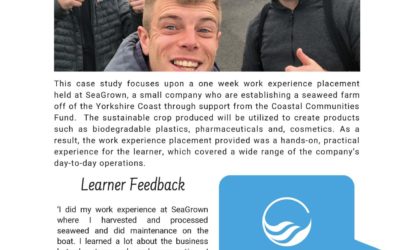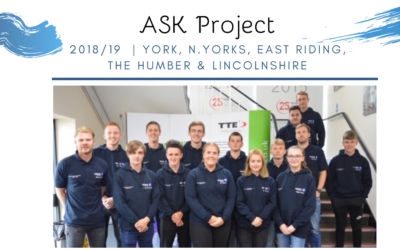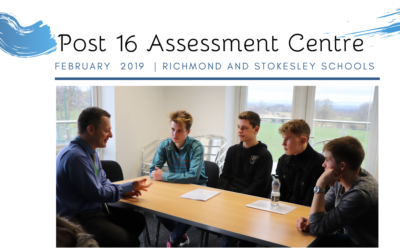Businesses & Employers
We work with businesses and employers across the North of England to develop skills and nurture talent for the future. Together, we make a real difference to the lives of young people whilst generating positive outcomes for the business and benefitting the people working in them.
Why work with us?
We can introduce you to your potential future workforce; young people who will become apprentices, graduates and employees who could be working in your business tomorrow.
We can help you to develop the talent in your workforce by delivering employer engagement opportunities through structured programmes of activity.
You can become an employer of choice by demonstrating your commitment to the wider community and enabling your employees to volunteer and get involved in something beyond ‘the day job’.
How does it benefit your business?
- Access opportunities to network with other businesses and public and private sector organisations. It can broaden your business horizons, spark new ideas and open up new markets and potential partnerships.
- Develop your corporate social responsibility to include an emphasis on education or provide more focus and structure to your strategy.
- Boost business and employee moral by making a real difference to the lives of young people through mentoring schemes, work placements and structured projects.
- Benefit from PR generated by your involvement with education. Positive stories about employability and enterprise skills are often covered by a wide range of media and offer great opportunities for positive press coverage.
- Work with a quality-assured and accredited provider of education business services that can add capacity to your plans and bring new skills and expertise to your business.
How do we help to develop future talent?
- Developing the next generation and preparing young people for the world of work is essential for increasing and future productivity and ensuring a competitive business. We can help you to engage with local schools.
- We consult with employers to determine skills gaps and needs and work alongside organisations such as Federation of Small Businesses, the Chamber of Commerce and Local Enterprise Partnerships to ensure young people have the skills for the future and are aware of the emerging trends in business.
- We help to ensure young people are prepared for emerging and future jobs by developing structured programmes that link to the curriculum, meet employer expectations and provide valuable opportunities.
- We reach out to employers to actively contribute to classroom content, regularly hosting employer led sessions, challenges and presentations that specifically address the skills, behaviours, and attributes that employers are looking for.
If you are an employer who is looking for a dynamic way to ‘connect’ with young people, then get in touch.
Over The Past Year We Have
Successful Futures has had one of the busiest years so far seeing a 36% increase on supporting schools with Careers, STEM and Enterprise activities.
Worked with 170 schools, secondary, primary and special
Facilitated over 310,000 hours of employee time in activities and projects
Supported over 3,600 employers to engage with nearly 40,000 young people in programmes that nurture talent and promote employability.
Case Studies
No Results Found
The page you requested could not be found. Try refining your search, or use the navigation above to locate the post.
Recent News
SeaGrown
This case study focuses upon a one week work experience placement held at SeaGrown, a small company who are establishing a seaweed farm off of the Yorkshire Coast through support from the Coastal Communities Fund. The sustainable crop produced will be utilized to...
read moreASK
The Apprenticeship Support and Knowledge (ASK) Project is a free Information, Advice and Guidance service for students and parents; highlighting apprenticeships and the pathways they can open to young people, supporting their transition from education to...
read morePost 16 Assessment Center
Richmond School's Careers Leader identified that an increased number of their Post 16 students were applying for Higher Apprenticeships and whilst they had experience of mock interviews and applications; they were not feeling prepared for alternative selection process...
read more


